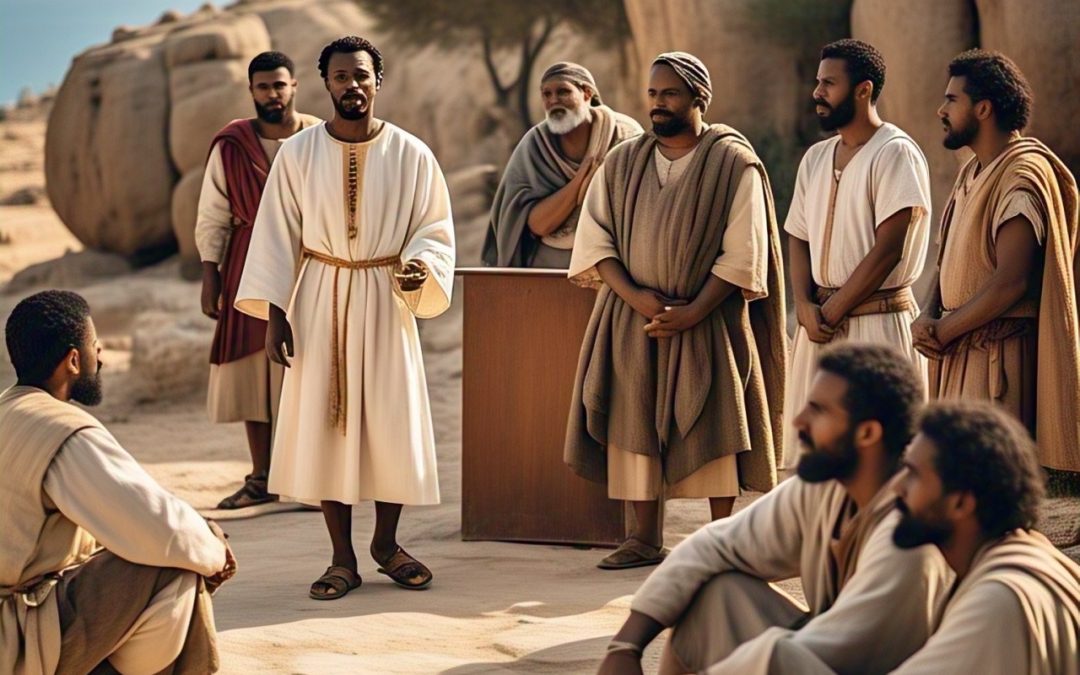In a world dominated by competing powers and principalities, genuine worship represents one of the most profound acts of protest available to believers. While worship is often domesticated as merely a devotional practice or relegated to the realm of personal piety, its true nature is far more subversive and politically charged than commonly recognized.
When the ancient Israelites gathered to worship YHWH, they were making a radical declaration that Pharaoh, Nebuchadnezzar, or Caesar was not ultimate. Their liturgical proclamation “The Lord reigns” constituted a direct challenge to the claims of earthly powers. This was no mere religious sentiment but a counter-imperial announcement of an alternative sovereignty. Moses’ demand to Pharaoh—”Let my people go that they may worship me”—frames worship itself as liberation from oppressive systems.
The early Christian confession “Jesus is Lord” similarly functioned as protest language in a context where “Caesar is Lord” was the required political allegiance. By transferring ultimate loyalty to Christ, early worshippers were engaging in what political theorists might call delegitimization, the withdrawal of consent from ruling powers and the recognition of an alternative authority.
Worship protests not just political powers but the fundamental idolatries of every age. When we proclaim God’s sufficiency in a consumer culture that tells us we never have enough, we engage in economic protest. When we confess human dignity as image-bearers in societies that reduce people to their utility or productivity, we enact anthropological protest. When we celebrate Sabbath in a world of relentless productivity, we participate in temporal protest.
The prophetic tradition consistently links authentic worship with justice, suggesting that liturgical practices divorced from ethical action become hollow performances rather than true worship. Amos thunders God’s rejection of religious festivals and offerings when they exist alongside oppression: “But let justice roll down like waters, and righteousness like an ever-flowing stream” (Amos 5:24). This prophetic critique suggests that worship that fails to protest injustice fails to truly honor God.
Jesus’ cleansing of the temple represents worship-as-protest in action. His disruption of the temple economy challenged religious systems that exploited the poor and excluded the marginalized. His action declared that worship spaces must embody the justice they proclaim or lose their sacred purpose.
To recover worship as protest requires moving beyond viewing it as merely a weekend activity or emotional experience. It calls us to understand liturgical practices as formation for resistance, training that shapes us into people capable of imagining and embodying alternatives to the dominant powers of our age. In this light, worship becomes not an escape from the world’s struggles but a revolutionary practice that nurtures the moral imagination and collective courage needed to challenge unjust systems.
In an age of commodified religion and privatized faith, reclaiming worship’s inherently protest-oriented nature may be one of the most important tasks before us.
Prayer
Sovereign God,
As we gather in worship, make us aware that our songs and prayers are not mere religious exercises but radical declarations that You alone are Lord.
When earthly powers claim ultimate authority, may our worship be a holy resistance. When systems of oppression demand our compliance, may our liturgy be an act of liberation.
Forgive us for domesticating worship into comfortable ritual, for separating our Sunday proclamations from Monday’s lived reality, for singing of justice while remaining silent in its absence.
Like Moses before Pharaoh, embolden us to demand freedom for worship. Like the prophets, teach us to connect our prayers with our practices. Like Jesus in the temple, give us courage to disrupt the economies of exploitation.
When we declare “God reigns” in a world of competing powers, let it be more than words, let it be our witness. When we proclaim human dignity in societies that devalue life, let it shape how we treat every person we encounter.
May our worship form us into people of holy protest, not merely singing about the world to come, but embodying its values in the world that is.
As we lift our voices, may we also raise our courage. As we bend our knees, may we also strengthen our resolve. As we open our hearts to You, may we open our lives to Your justice.
We pray in the name of Jesus Christ, whose lordship challenges every false authority, and whose kingdom subverts every unjust power.
Amen.


Recent Comments